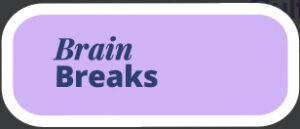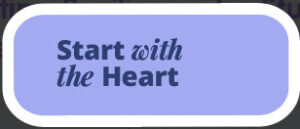Even before COVID-19 uprooted our lives and shook the foundations of the systems within which we live, data on mental health in the U.S., and specifically in education, was troubling. Months into the pandemic, many of us still face anxiety, feelings of loneliness and isolation, worries about our health and the health of loved ones, and the emotional and practical challenges that come with a national, ongoing uncertainty around what comes next and when our lives will start to resemble “normalcy.”
Stress is contagious, and when we support the adults who serve our children and youth, the reciprocity of self-care will support the collective good.
In the months since this upheaval, we have demonstrated resilience and ingenuity in adapting to our new circumstances. Some of us have formed new habits and sought new skills in support of self-care, taking a day-by-day approach to our lives in the face of discomfort, stress, or fear. The ability to acclimate and care for oneself is particularly important in the education community, as those responsible for teaching and caring for others must be especially resourced and able to self-regulate and manage emotions. Stress is contagious, and when we support the adults who serve our children and youth, the reciprocity of self-care will support the collective good.
As we plan for the upcoming school year, we cannot ignore that we are also moving through individual and societal traumas. We have to pause to consider whether we are equipping educators with the resources they need to take care of themselves and to be great educators.
We can only show up as our best selves for others when we prioritize caring for ourselves.
Anyone who has worked in schools knows that while teaching can be one of the most rewarding and impactful professions, it is also one of the most stressful. Pure Edge began focusing its work on teacher stress in response to a research brief by Dr. Mark Greenberg of The Pennsylvania State University. At that time, in 2016, nearly half of teachers reported high daily stress. We can only assume this number has dramatically increased since school closings began and as educators face ambiguity around what the upcoming school year will look like. The 2016 brief also underscored that highly stressed teachers impact student academic performance and social adjustment. The impact on educators is significant, too. Those high stress levels compromise health, sleep, quality of life, and job performance. But the findings gave us hope as well. They showed that both organizational and individual interventions can reduce teacher stress, and programs for things like social-emotional learning and mindfulness improve both teacher well-being and student outcomes. As stress levels climb, educators need more support than ever. We can only show up as our best selves for others when we prioritize caring for ourselves.
This August, put yourself first. If you do, we think you’ll be a happier, healthier version of you. And you matter. Here are a few of our suggestions:
1) If you can only find two free minutes in your day, use them for your self-care. Try a Mindful Minute or your favorite Brain Break. If all you can fit into your day is an Even In-Even Out as you wake up in the morning, that’s ok. That simple act can change your day and help you to better self-regulate.
2) If you find yourself beginning to feel stressed, notice what is happening in your body. Then reach for a breathing exercise. Try a few to discover which feels most effective for you. Maybe it’s Take Five (Starfish), Anchor Breathing, or Breathing Ball.
3) Acknowledge your feelings without judgment. During our Planning for the Return series, Dr. Marc Brackett discussed what it means to be an “Emotion Scientist.” The emotion scientist sees emotions as information and recognizes that even challenging emotions serve a purpose. The Mindful Minute is one way to practice listening to what is happening in your body and what you are feeling.
4) Find ways to engage with others, even from a distance. Physical distancing is not synonymous with social and emotional distancing. When was the last time you wrote a letter? If that sounds like a little much, a quick “thinking of you” text goes a long way in maintaining relationships and feeling connected.
5) Build daily habits: Breathe, Move, Rest, Journaling, and Attitude of Gratitude. You might want to revisit our 15-Day Self-Care Challenge, where our Director of Professional Development, Gill McClean, led participants through each of these habits.
Thank you to all who have participated in or viewed on demand any of our nearly 300 webinars. We’d love to connect with you on Twitter and Instagram, where we will continue to share self-care exercises and gratitude for the incredible educators who start with the heart.


